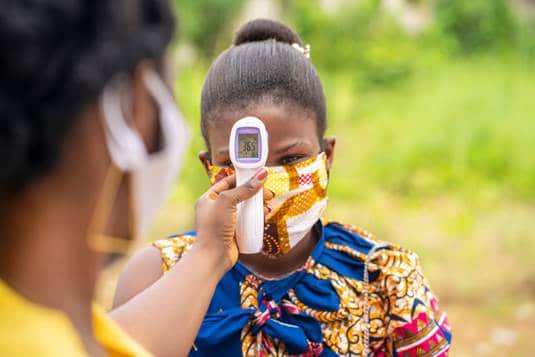By Thomas Herd
In the early days of the pandemic, when very few countries outside of Asia had realised the threat posed by Covid-19, leaders across Africa were already rallying their response. As early as the third week of February, the Africa CDC had called an emergency meeting with all 55 African health ministers to devise a continental Covid-19 response strategy. This meeting would be swiftly followed by weekly video calls to coordinate the African response in the months that followed.
Meanwhile, UK Prime Minister Boris Johnson would not attend his first ‘Cobra’ crisis meeting until March 2nd. Lessons had clearly been learned from previous health crises, particularly Ebola and cholera outbreaks.
With their coordination strategy established, the Africa CDC set about building out the continent’s public health capacity. The Louis Pasteur Institute in Senegal was tasked with training test technicians and 1 million emergency test kits were ordered from Germany. By the end of February, 42 countries on the continent were in a position to test for Covid-19 when none could only weeks before.
Next came national lockdowns. As early as 15th March, several countries across Africa closed their borders and imposed strict lockdown measures to keep R numbers low. South Africa was particularly reactive, implementing one of the strictest lockdowns globally before a single death had been recorded, contributing to a rapid decrease of the rate of infections.
Taking the initiative
Many countries across Africa recognised an opportunity existed to combine existing emergency health care protocols with innovation to improve response effectiveness.
Taking the initiative, the Ethiopian government arranged for genomics firm BGI Group to open a factory capable of producing six million affordable and highly accurate Covid-19 tests a year. First opened in September 2020, that factory is still producing test kits today, benefitting other countries in the region while expanding local employment and human capital in the process. BGI also worked closely with the government of Angola and other governments in the region to establish emergency testing facilities with the capability to analyse thousands of Covid-19 samples a day, significantly improving local detection and diagnostic capacity.
Liberia, applying lessons learned during the West African Ebola outbreak of 2014-16, placed community action at the centre of the country’s coronavirus prevention efforts. Local leaders were consulted, assisting in establishing a community-based enhanced surveillance system that provided crucial real-time information on the spread of the virus from June 2020 – avoiding the local mistrust which accompanied some Ebola outbreaks half a decade earlier. The country’s public health response was further supported by the rapid training of more than 200 laboratory sample collectors to support national coronavirus testing efforts.
States across Africa also partnered with NGOs and leading international businesses, particularly biomedical companies like BGI, to rapidly expand the delivery of essential services. Through proactive and innovative policy decisions, international observers agree Africa managed to avoid becoming overwhelmed during the first phase of the pandemic. At the time of writing, Africa, which makes up approximately 17% of the world’s population, recorded just 4.3% of all Covid-19 deaths.
Outcomes and Africa’s future
Some commentators have pointed out that a youthful population, low rural population density, and lower overall population mobility have resulted in a lower continental death rate. This is partly true, of course. Nevertheless, an alternative point of view would rightly praise African leaders, institutions, and communities for taking the proactive steps required to combat the virus – often weeks or months before their counterparts in the developed world.
Of course, this is not to say that lessons cannot be learned. Building stronger links with the international healthcare industry will better position African states to tackle future public health crises while simultaneously expanding opportunities for employment and sustainable economic growth. In particular, expanding genomic science capacity – still in many ways a nascent industry internationally – will help to place Africans at the forefront of a rapidly growing sector while simultaneously allowing novel diseases to be rapidly sequenced and mitigated.
Nevertheless, to benefit fully from international partnerships, African countries will need to prove to the world that they are doing everything to check the spread of the virus. Testing will be of particular importance until vaccination is more widely applied. Testing labs of the kind established by BGI Group at airports across the continent including in Ethiopia, Botswana and Togo, will be key to securing the return of safe international travel.
Happily, the aftermath of Covid-19 in Africa is unlikely to feature the uncomfortable questions many developed nations will be forced to ask themselves. The African Covid-19 legacy will be all together more positive – a continent better placed to manage future public health challenges, with systems and human capital in place to drive greater regional and international collaboration.
DISCLAIMER: Brand Voice is a paid program. Articles appearing in this section have been commercially supported.
